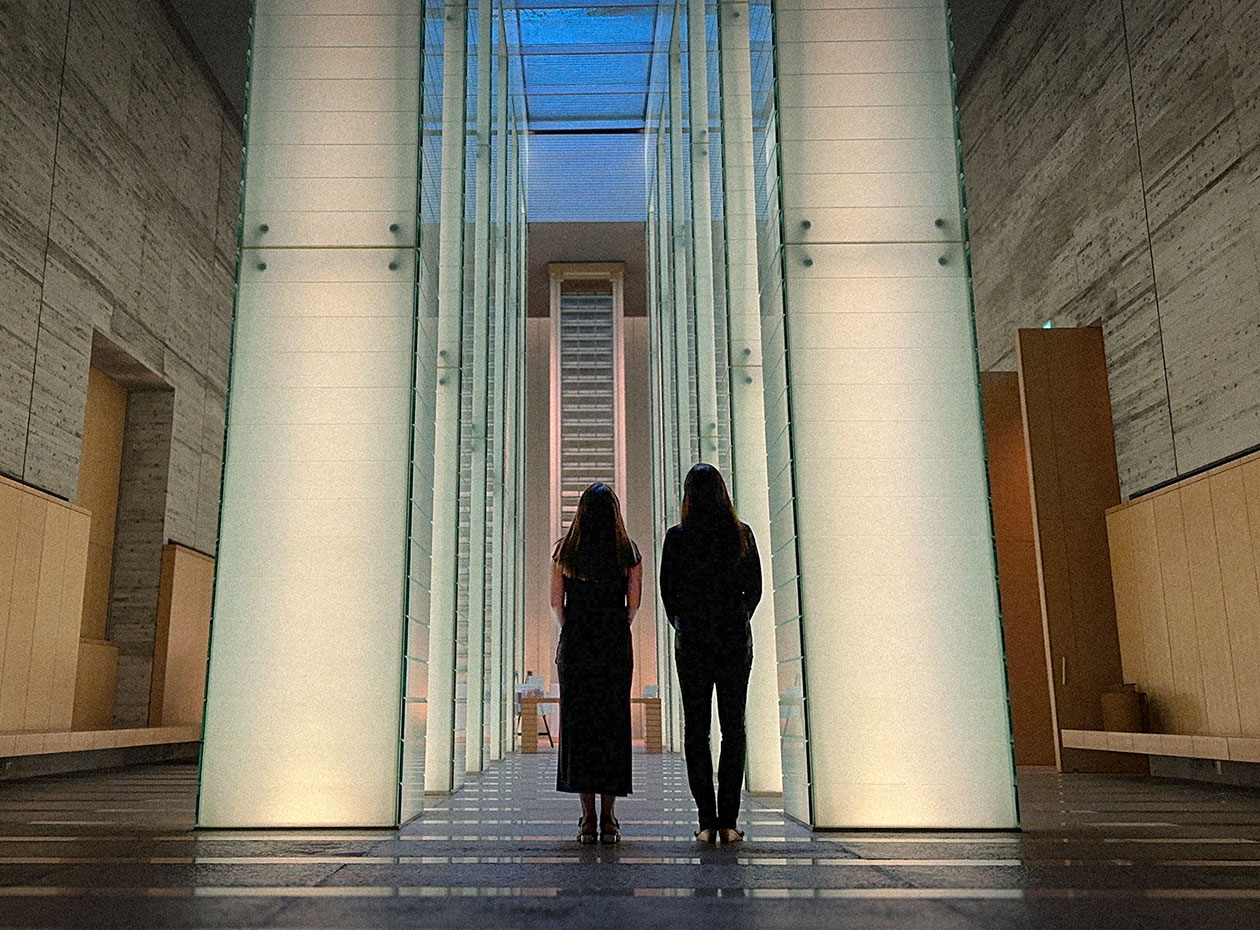
ABOUT THE PROJECT
LOGLINE
As the 80th anniversary of the Hiroshima and Nagasaki atomic bombings approaches, two friends—and descendants of survivors and soldiers on opposite sides of the war—embark on a shared journey to understand the trauma on both sides, revealing new perspectives on the nuclear age.
SYNOPSIS
As the world approaches the 80th anniversary of the atomic bombings of Hiroshima and Nagasaki, much of the American public remains unaware of the psychological and physical toll left on both sides of the war.
The “hibakusha”—the estimated 650,000 Japanese survivors of the bombings—continue to suffer lifelong health complications from both physical injuries and radiation exposure, along with deep psychological trauma from the immense loss and devastation they endured. The “atomic veterans”—the estimated 200,000 American soldiers who responded in the immediate aftermath of the bombings—are plagued by radiation-related illnesses and PTSD from witnessing the horrific aftermath.
The scars of nuclear warfare run deep for both Japanese civilians and American troops, and their descendants, who seek answers and understanding amidst the silence, confusion, and shame. But time is running out. As the remaining survivors reach 100 years of age, this may be our last chance to hear their voices and preserve their stories for future generations.
Karin Tanabe and Victoria Kelly, two friends whose families were on opposite sides of the war, embark on an emotional journey to uncover their family legacies. Karin’s great-great-uncle was from Hiroshima and dedicated his life to peace-building after the bomb, while Victoria’s grandfather, an American veteran who served in Nagasaki, was haunted by his experiences and suffered from post-traumatic stress disorder and alcoholism until his death.
Together, Karin and Victoria seek answers from family members, historians, and psychologists, and speak with the last remaining American atomic veterans and Japanese survivors, before time runs out. Through their travels, conversations, and acts of reconciliation, they offer a new perspective on the nuclear age and its enduring consequences, urging reflection and peace as this pivotal anniversary approaches.
PROJECT TYPE Documentary Feature
DIRECTOR Beatrice Becette
PRODUCER Beatrice Becette
EXECUTIVE PRODUCER Kenzie Bruce, Greg Moyer
WEBSITE bluechalk.com
The Film Collaborative (TFC) is a 501(c)(3) nonprofit organization dedicated to providing programs and services for independent filmmakers. TFC’s federal tax ID number is 32-0295081. All donations are tax deductible to the extent allowed by law.
Support a TFC Fiscal Sponsorship Project
Please help support this project with a tax deductible contribution. The “donate” button below will take you to PayPal, but a PayPal account is not required to make a donation. You can check out 2 ways:
- Use your PayPal account
- Check out as a guest by selecting “Donate with a Debit or Credit Card” (no PayPal account is required)
Transaction Fee
Please consider covering the PayPal transaction fee by selecting the “I’d like to add to my donation to help offset the cost of processing” box on the next page. This will ensure your intended full donation amount will be received for the project.
Alternate Donation Payment Methods
If you prefer to donate by check, Zelle, ACH, or wire transfer, please email us for instructions.
Stock Donations
TFC accepts stock donations. By donating stock that has appreciated for more than a year, you are giving 20% more than if you sold the stock and then made a cash donation, since you will not pay capital gains taxes on the donated stock. Learn more here.
Please email us for instructions to donate stock to a fiscally sponsored project.
Donor Advised Fund (DAF) Donations
A donor-advised fund, or DAF, is like a charitable investment account for the sole purpose of supporting charitable organizations. TFC accepts DAF donations and is on file with most major DAF companies. Provide your DAF TFC’s Tax ID: 32-0295081. If we are already on file with your DAF company, they will process the donation.
If TFC is not already on file with your DAF company, please email us for instructions.
Tax Receipts
In compliance with IRS rules, tax receipts for your charitable gift are issued for the amount The Film Collaborative receives after payment processor fees are deducted. The Film Collaborative emails tax receipts in PDF format within 30 days of your online donation. The “receipt” that is immediately sent to you from PayPal after you donate is just a payment receipt, not the tax receipt.
Matching Donations
Many companies have matching gift programs and can help you double your donation to a project of your choosing. Sometimes these programs will match a donation up to a year after it was originally made! Check with your employer—if they have a matching gift program, they will provide you with instructions.
End of Year Giving
November, December, and January are big giving months each year. Donors top up their annual giving in November and December. January is a new fiscal year, and some donors start their giving for the next fiscal year early. Some donors even give at the end of the year and again in January since these donations fall into different fiscal years.
Donors tend to make their large year-end donation decisions before the holidays start. In 2024, that means before December 20. TFC can accept donations by wire, ACH, and Zelle until 5:00pm Eastern Time on December 31. Online donations by credit or debit card can be made until 11:59pm Pacific Time on December 31.
ID: 687